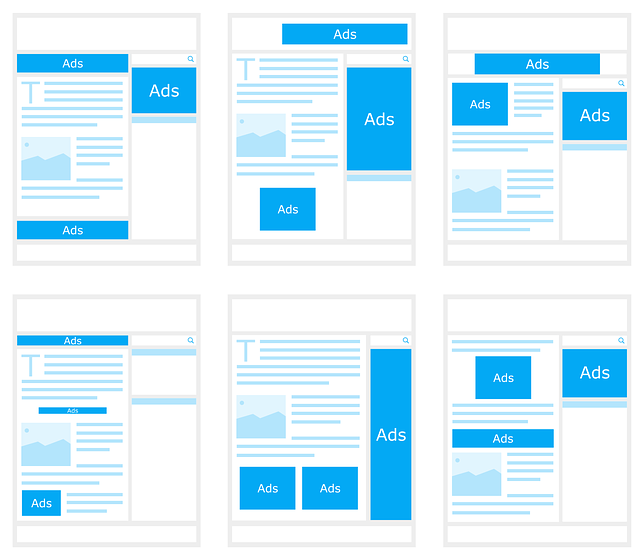Are you looking for effective ways to boost your financial services business? Look no further than email marketing.
Imagine this scenario: You are a financial advisor who wants to connect with your clients on a more personal level and provide them with valuable insights. By leveraging the power of email marketing, you can send tailored messages directly to their inboxes, offering expert advice and exclusive offers.
This strategy has been proven to drive customer engagement and retention, as well as increase sales and conversions. In fact, a recent case study showcased how a financial services firm increased their customer retention rate by 20% through targeted email campaigns.
In this article, we will explore the success stories and case studies of email marketing in the financial services industry. Get ready to uncover the secrets to enhancing brand awareness, improving customer communication, and measuring campaign performance through real-life examples.
Key Takeaways
- Email marketing is an effective strategy for boosting financial services businesses, leading to increased customer retention rates and improved sales.
- Targeted email campaigns can enhance customer engagement and loyalty by providing personalized content, highlighting benefits, and offering exclusive offers.
- Tracking and analyzing email campaign performance is crucial for optimizing results and improving sales strategies.
- Compliance and security in email marketing are important considerations to maintain customer trust, including adhering to data protection and privacy regulations and implementing email authentication and anti-spam measures.
Increase Customer Engagement and Retention
Discover how using email marketing can boost customer engagement and improve retention rates in the financial services industry. By leveraging personalized recommendations and loyalty programs, email marketing allows financial service providers to effectively connect with their customers and build lasting relationships.
Through targeted emails, customers receive tailored recommendations based on their financial goals, helping them make informed decisions and feel valued by the company. Additionally, email marketing enables the promotion of loyalty programs, offering exclusive benefits and rewards to customers who actively engage with the brand. This not only encourages customer retention but also fosters a sense of loyalty and trust.
By implementing these strategies, financial service providers can strengthen customer engagement and increase retention rates.
Transitioning into the next section, email marketing also plays a crucial role in driving sales and conversions.
Drive Sales and Conversions
Boost your bottom line by increasing sales and conversions – how can you resist? Email marketing is a powerful tool to drive revenue and optimize conversions for financial services. By leveraging targeted email campaigns, you can effectively promote your products and services to your audience, leading to increased sales and revenue.
You can create personalized emails that highlight the benefits of your offerings, provide exclusive offers or discounts, and use compelling call-to-action buttons to encourage conversions. Additionally, you can track and analyze the performance of your email campaigns to identify areas for improvement and make data-driven decisions to enhance your sales strategy.
By implementing an effective email marketing strategy, you can boost your revenue and optimize conversions, ultimately contributing to the growth and success of your financial services business.
In the subsequent section, we will discuss how email marketing can help enhance brand awareness and reputation.
Enhance Brand Awareness and Reputation
If you want to enhance your brand awareness and reputation, there are two key points that you need to focus on: consistent branding and messaging, and thought leadership content.
Consistent branding and messaging helps to create a strong and recognizable brand identity, while thought leadership content establishes your expertise and positions you as a trusted authority in your industry.
By implementing these strategies, you can build a positive reputation and increase awareness of your brand, ultimately driving more success for your financial services business.
Consistent Branding and Messaging
Ensure that your brand messaging remains consistent across all email campaigns, captivating your audience and building trust in your financial services.
Building customer loyalty and maintaining a consistent brand image are crucial for success in the competitive world of email marketing. By consistently presenting your brand’s values, voice, and visual identity, you create a recognizable and trustworthy image for your audience. This consistency reassures customers that they are engaging with a reliable and professional financial services provider.
Utilize your email campaigns to reinforce your brand messaging through compelling content that resonates with your target audience. By consistently delivering valuable and consistent information, you establish yourself as a thought leader in the industry.
Transitioning into the subsequent section about ‘thought leadership content,’ it is crucial to position yourself as an expert in your field.
Thought Leadership Content
Positioning yourself as a trusted industry expert through thought leadership content allows you to establish credibility and authority, captivating your audience and building trust in your brand.
A strong content strategy is essential in showcasing your expertise and providing valuable industry insights. Here are five key benefits of thought leadership content:
- Establishing yourself as a go-to resource for industry knowledge.
- Demonstrating your understanding of market trends and challenges.
- Offering unique perspectives and innovative solutions.
- Attracting high-quality leads and potential clients.
- Enhancing your brand reputation and visibility.
By consistently delivering thought-provoking and informative content, you can position your financial services brand as a thought leader in the industry. This will naturally lead to improved customer communication and support, as your audience will view you as a reliable source of information and guidance.
Improve Customer Communication and Support
Improve your customer communication and support by leveraging email marketing strategies that have proven success in the financial services industry. Email marketing allows you to provide personalized communication that meets your customers’ needs and enhances their overall satisfaction.
By sending targeted emails tailored to specific customer segments, you can address their individual concerns and offer relevant solutions. Use email campaigns to keep your customers informed about new products, services, or industry updates, ensuring they feel valued and engaged.
Additionally, email marketing enables you to provide prompt and efficient customer support by offering quick responses to inquiries or issues. By implementing these strategies, you can enhance customer satisfaction and build stronger relationships.
To further optimize your email marketing efforts, it’s crucial to measure and analyze the performance of your campaigns.
Transitioning into the subsequent section, let’s explore how to effectively measure and analyze email campaign performance.
Measure and Analyze Email Campaign Performance
Maximize the impact of your email campaigns by effectively measuring and analyzing their performance. To ensure that your email campaigns are delivering the desired results, it’s crucial to track and evaluate key performance indicators.
Here are four essential metrics to consider:
-
Email Campaign ROI: Measure the return on investment generated by your email campaigns. Calculate the revenue generated from email campaigns and compare it to the cost incurred to determine the overall effectiveness.
-
Email Open Rates: Monitor the percentage of recipients who open your emails. A high open rate indicates that your subject lines are compelling and engaging, while a low open rate may require changes to your email content or targeting strategy.
-
Click-through Rates: Track the percentage of recipients who click on links within your emails. This metric indicates the level of engagement and interest in your content.
-
Conversion Rates: Evaluate the percentage of recipients who take the desired action after clicking on your email. This could include signing up for a service, making a purchase, or filling out a form.
By analyzing these metrics, you can gain valuable insights into the effectiveness of your email campaigns and make data-driven decisions to optimize their performance.
As you focus on maximizing your email campaign results, it’s also essential to ensure compliance and security in email marketing.
Compliance and Security in Email Marketing
In order to ensure compliance and security in your email marketing efforts, it’s important to consider key points. These include data protection and privacy regulations, email authentication, and anti-spam measures.
By adhering to data protection and privacy regulations, you can safeguard the personal information of your customers and maintain their trust.
Implementing email authentication and anti-spam measures will not only help in preventing unauthorized access to your emails but also ensure that your messages are delivered to the intended recipients without being marked as spam.
Data Protection and Privacy Regulations
Picture yourself navigating through a labyrinth of data protection and privacy regulations, as you try to ensure your email marketing for financial services is compliant and secure.
With the increasing number of data breaches and the introduction of GDPR compliance, it’s crucial to prioritize data protection and privacy in your email marketing strategies. GDPR compliance requires you to obtain explicit consent from your customers, implement robust security measures, and ensure that their personal data is handled with utmost care.
By adhering to these regulations, you not only protect your customers’ sensitive information but also build trust and credibility with them.
As you move forward, it’s essential to consider email authentication and anti-spam measures to further enhance the security of your email marketing campaigns.
Email Authentication and Anti-Spam Measures
To bolster the security of your email campaigns, it’s crucial to implement email authentication and anti-spam measures. This will ensure that only legitimate messages reach your customers’ inboxes. Here are five key measures to improve email deliverability and maintain a strong email reputation:
-
Implement Sender Policy Framework (SPF) and DomainKeys Identified Mail (DKIM) to authenticate your domain and prevent email spoofing.
-
Use a reputable email service provider (ESP) that has established relationships with ISPs to ensure better email delivery rates.
-
Regularly monitor your email reputation by checking feedback loops and spam complaints to identify and resolve any issues promptly.
-
Keep your email list clean by regularly removing inactive or unengaged subscribers to maintain a high deliverability rate.
-
Follow best practices for email content, such as avoiding excessive use of promotional language, misleading subject lines, and spam trigger words.
By implementing these email authentication and anti-spam measures, you can enhance the deliverability of your emails and maintain a positive email reputation, ultimately improving your email marketing effectiveness.
Frequently Asked Questions
How can financial services companies effectively segment their email lists to increase customer engagement and retention?
To increase customer engagement and retention, financial services companies can effectively segment their email lists using personalization strategies and email content optimization.
By tailoring emails to specific customer segments, you can create a personalized experience that grabs their attention and keeps them coming back for more. Use data such as demographics, purchase history, and behavior to target the right audience with the right message.
This level of personalization will make your customers feel valued and increase their engagement and loyalty.
What strategies can be implemented to drive sales and conversions through email marketing in the financial services industry?
To drive sales and conversions through email marketing in the financial services industry, you need to focus on personalization techniques and A/B testing.
By tailoring your emails to each individual customer’s needs and preferences, you can increase engagement and ultimately drive more sales.
A/B testing allows you to experiment with different email designs, subject lines, and calls to action to determine what resonates best with your audience.
By constantly tweaking and optimizing your emails, you can increase conversions and maximize your ROI.
How can financial services organizations use email marketing to enhance their brand awareness and reputation among customers?
Enhance your brand awareness and reputation among customers by leveraging email marketing strategies in the financial services industry.
Learn from case studies and success stories of organizations that have successfully built customer loyalty through effective email campaigns.
Craft personalized and targeted messages that resonate with your audience, offering valuable insights and exclusive offers.
By consistently delivering relevant content and engaging with your subscribers, you can establish trust, credibility, and a strong brand presence in the minds of your customers.
What are some best practices for improving customer communication and support through email marketing in the financial services sector?
To improve customer communication and support through email marketing in the financial services sector, it is important to utilize personalization techniques and email automation. By personalizing emails with customer names and relevant information, you can create a more tailored experience.
Additionally, automate emails to ensure timely and consistent communication. This will help build trust and enhance customer satisfaction. Remember, personalized and automated emails can save time and effort while still delivering a personalized touch to your customers.
What key metrics should financial services companies focus on when measuring and analyzing the performance of their email marketing campaigns?
To measure the success of your email marketing campaigns, financial services companies should focus on key metrics. These metrics include open rates, click-through rates, conversion rates, and unsubscribe rates. These email marketing analytics provide valuable insights into the performance of your campaigns and help you understand what resonates with your audience.
By tracking these metrics, you can make data-driven decisions to optimize your email marketing strategy and drive better results. Don’t underestimate the power of measuring your email marketing success!
Conclusion
In conclusion, email marketing is a powerful tool for financial services to achieve their goals. By utilizing this strategy, you can increase customer engagement and retention, drive sales and conversions, enhance brand awareness and reputation, improve customer communication and support, and measure and analyze campaign performance.
With its compliance and security measures, email marketing ensures the safety of your data. So, don’t miss out on this game-changing opportunity to skyrocket your success and dominate the market!









